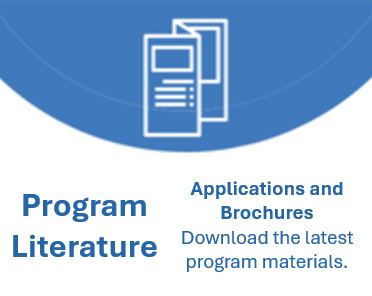ESIP FAQ's
![]()
Process / Implementation
What is ESIP? ESIP is an acronym for the Energy Savings Improvement Program. It’s a performance contracting program administered by the BPU. ESIP is a financing mechanism used to pay for energy efficiency projects for all public entities.
Who is eligible? Any public entity that has a preliminary energy audit and can demonstrate energy savings may participate in the ESIP program.
We’ve decided we’d like to proceed with an ESIP project. Who can help us get started? BPU’s ESIP Coordinator is readily available and happy to discuss your first steps. You can send an email to BPUESIP@bpu.nj.gov or call 609-913-6295. The two requirements for commencing an ESIP project are to have a preliminary audit performed and to submit an ESIP Intake Form. Once the ESIP Coordinator receives the intake form, you will be contacted for a meeting to discuss.
We did an ESIP several years ago, can we do another project? Absolutely. As long as there are savings to be achieved, another ESIP project is always an option.
Who performs the actual building upgrades? Contractors must be DPMC certified, pay prevailing wage, and abide by either Local Public Contract Law or Public School Contract law. The model chosen for implementation, will determine who will do the actual energy efficiency improvements.
What are the ESIP Models? There are 3 ESIP Models to choose from. Through the ESCO model, the project is “turnkey,” meaning the ESCO acts as the General Contractor and manages the entire project for you. The DIY model means that you do the project yourself, using your own in house expertise and/or separately procuring various contractors to complete the upgrades while the hybrid model is a combination of the two. Although each of the three ESIP models has their own corresponding processes, the financing mechanism remains the same.
What type of classification must the third party auditor have? Per Treasury’s Division of Property Management and Construction(DPMC), third party auditors must be classified and approved as an Energy Auditor ( P051) . Click here for link to DPMC’s Contractor/Consultant Search page.
Preliminary Energy Audit
How can I check if my district or town has had a preliminary energy audit?
If a district or town has had an audit that was paid for check with your facilities team who might have a record of it. If a BPU Local Government Energy Audit (LGEA) was done, you can find it online. All completed audits are listed alphabetically on the NJ Clean Energy Website. Click here.
What do I do with a now that it is complete? The preliminary energy audit report is a great guide to show the potential energy conservation measures, the cost to install and the return on investment. It can help plan out how to tackle the areas of improvement. The audit will give you a baseline of energy use and can help inform the development of an RFP. It can also help identify any incentives that might help offset the total project cost. In addition, it gives you an idea of the size and scope of a potential project. Only buildings covered in the preliminary audit can be covered in your ESIP so make sure everything is included.
How long do I have before my preliminary audit is no longer valid for ESIP? Since the preliminary audit serves to establish the baseline and current building conditions, Staff will accept an audit that is within 3 years of an ESIP RFP. An entity wishing to use an audit older than 3 years but less than 5 years may apply for consideration for use to the ESIP Coordinator. This includes LGEA and other sourced ASHRAE Level 2 Building and Level 3 audits.
Can I hire someone to do a preliminary audit? Yes, as long as they are an approved DPMC energy auditor. A list of state approved energy auditors can be found here.
My town just did an Energy Audit with our utility provider. Can we proceed with their recommendations and incentive program? Yes, you can proceed with given recommendations; however, you should consult your legal counsel about the signed contract to ensure that it complies with the Local Public Contracts Law. Currently DCA does not recognize the utility program Direct Install or Engineered Solutions as compliant. Additionally, if this audit will be used for an ESIP, make sure it is an ASHRAE Level II building and Level III Lighting or it will not be eligible. If you are planning on doing a comprehensive project, reach out to the ESIP coordinator at ESIP@bpu.nj.gov
Expenses & Financing
Is ESIP a monetary rebate or a funding stream? ESIP is a financing mechanism and allows you to make energy efficiency improvements without using capital expenses. It is not a rebate or an incentive. It is a type of performance contracting where the savings you receive from making the upgrades will pay for the project, with no upfront capital costs.
ESIP projects may be eligible for Board approved energy efficiency programs that include incentives and rebates that can help offset project costs.
What items will the local entity be responsible for paying out of budget? There is only one required out of pocket cost associated with doing an ESIP project and that is the cost of the third-party independent energy auditor. The auditor is hired by the public entity to review your projects Energy Savings Plan ensuring that the project is compliant with BPU protocols and program guidelines. This cost for this audit is approximately ½ to 1 % of total project cost. If you purchase a savings guarantee from the ESCO for your project, which is highly recommended, the cost of the savings guarantee must be paid for separately and cannot be bundled into an ESIP project.
Our School District received a large amount of federal funds, can they be used in an ESIP project? Yes. Any federal or state Covid Relief funds may be eligible for use as a cash infusion to an ESIP project. This includes but is not limited to: ESSER funds, HVAC upgrade funds, electric vehicle charger rebates and more. All program rules for the funds must be followed.
We recently received a grant from the School and Small Business Stimulus Fund, can these funds be used in an ESIP project? In addition to ESSER funds? Yes. Any federal or state Covid Relief funds may be used within the financing of an ESIP project.
Can we contribute our own funds to the project as well? Yes, you have the option of contributing your own funds. These funds will be included in the financing and will function as a capital cash infusion to the project.
We were thinking that it would be faster and easier to use the relief funds directly and do the upgrades, instead of doing an ESIP project. Is this true? The choice between these options should be determined by the nature and extent of the energy savings you hope to achieve. An ESIP project is comprehensive and will address all of the entities energy efficiency needs, instead of only HVAC related upgrades. Due to the nature of a comprehensive project it is likely to take longer than a one off project but it also allows an entity to include additional items.
Solar
Can we include solar in our ESIP project?
Absolutely, solar is highly recommended within an ESIP project. You have two options for including solar: An entity may own the solar array with a direct purchase of the system or an entity may participate in a Power Purchase Agreement (PPA) for solar, which is more like a rental agreement. There are pros and cons to each option but it’s recommended that both options are explored to determine what works best with your individual town or school district prior to commitment.
Are Renewable Energy Credits such as SRECs, TRECs, or SuSi permitted for use in an ESIP project? The ESIP law prohibits any type of Renewable Energy Credit (REC) from being utilized in the financing of an ESIP. In the past several years, the Board has implemented newer incentive programs that provide Transition Incentive Renewable Energy Certificates (TREC) and Successor Solar Renewable Energy Certificates (SuSi ). The law specifically states that similar attributes cannot be utilized. For clarification, any Renewable Energy Credit derived from the generation of renewable energy cannot be utilized within an ESIP project.
Are we eligible to use the Direct Pay option of federal tax credits?
Government entities are now eligible for federal tax credits for solar projects. We encourage you to talk to a tax professional to understand the program and applicability to your local entity. The credits will not be provided until after construction and is dependent on your tax year. This is not available for a PPA arrangement for the government entity to claim since it is a lease not ownership of the system.
To return to the ESIP Home Page, please click here.






.jpg)


